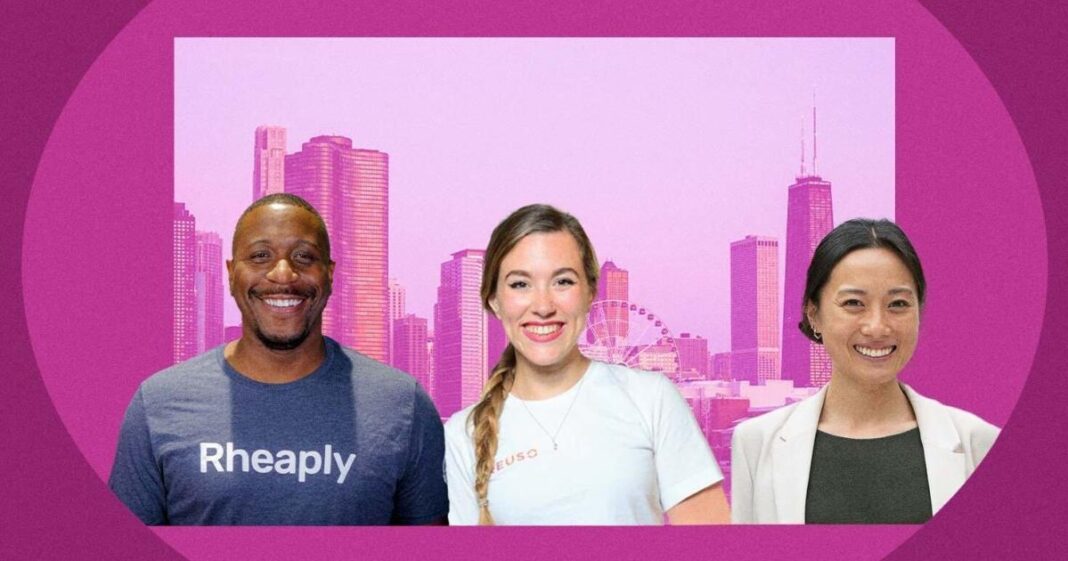Our flagship event, Circularity 24, will gather professionals advancing the circular economy next month in Chicago.
Bringing this event to the Windy City means coming full circle personally and professionally. Growing up, I attended an environmental charter school in the suburbs of Chicago, which instilled a sense of environmental stewardship, putting me on the path towards a career in sustainability and eventually leading me to my role at GreenBiz.
Ahead of Circularity 24, I asked three trailblazing circular economy leaders in Chicago what they see on the horizon. They exemplify Chicago’s burgeoning circular economy community, crafting solutions rooted in personal experience and tailored to local needs. From redefining waste management to nurturing sustainable food systems, these innovators are driving change that starts at the grassroots level and is quickly scaling up.
Can you briefly introduce yourself and your role in the circular economy space in Chicago?
Garry Cooper, CEO and co-founder of Rheaply
As a company founded in Chicago, Rheaply enables reuse in the workplace, finding ways to extend value across the entire product lifecycle. Rheaply is a leading innovator in helping companies leverage the circular economy to unlock new revenue streams and build long-term resilience.
Eva Bugg, CEO and co-founder of Reuso
Reuso is a software company empowering food and beverage operators to transition away from disposables to reusable containers through our tag-and-trace technology, similar to a library book rental system.
Lily Wang, CEO and co-founder of Demi
Our mission is to make composting mainstream by making it cool for urbanites and smart for buildings to reframe the way we think of “trash” — starting with organics.
I could not find a solution in Chicago centered around reuse and decided to build it.
Goldberg: What inspired you to become involved in the circular economy?
Cooper: While working towards my Ph.D. in neuroscience, I realized that there were silos within the university when it came to sharing resources. Rheaply (a combination of the words “research” and “cheaply”) started out as a resource exchange technology for higher education, but soon began expanding to commercial organizations as we realized our tools and technology were well positioned to be a solution toward operationalizing circularity for any business.
Bugg: Growing up in the Appalachian Mountains, I have always felt in tune with the environment. I started a recycling program when I was in elementary school. During the pandemic, I wanted to help restaurateurs by ordering takeout but not at the expense of the planet. I could not find a solution in Chicago centered around reuse and decided to build it with my husband.
Wang: My parents, who were sent to the rice farms during the Cultural Revolution in China. They ingrained in me early on to see food, even at the end of its life, never as “waste” but rather as a valuable resource to be returned back to Earth and help new life grow.
As Chicago begins to run out of space for our waste, alternative reuse solutions are having the spotlight turned on them.
Goldberg: How do you see the circular economy landscape evolving in Chicago specifically?
Cooper: There are over 144 million square feet of building spaces [in Chicago]. Unused office furniture, out-of-date lab equipment, and other forgotten building materials collecting dust must find new homes as the clock is ticking on landfill capacity.
Bugg: There are 22 million pounds of plastic entering our Great Lakes on an annual basis. We are seeing the effects in our waterways and our landfills are reaching capacity in the next decade. As Chicago begins to run out of space for our waste, alternative reuse solutions are having the spotlight turned on them. Now is our time to shine and keep our city clean.
Wang: It’s growing. People always point to the coasts but there is so much happening in Chicago. From initiatives like compost drop-off sites and anaerobic digesters to startups like Rheaply, Mycocycle, and Kadeya — I’m excited to be part of the circular future here in Chicago.
